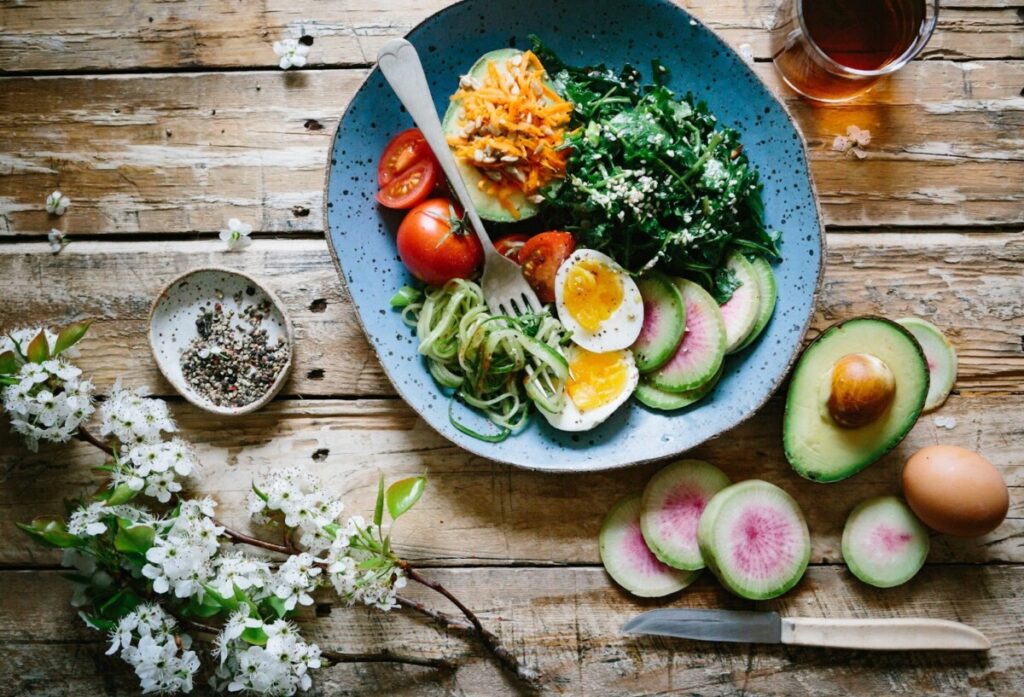Elyse Resche and Evelyn Tribole, two dietitians, founded Intuitive Eating (IE) in 1995 as a health strategy fully backed by qualitative and quantitative research. If you remember only one thing from this article, make it the fact that intuitive eating doesn’t represent a diet. Anti-diet is a term that is frequently used to describe it. There are absolutely no forbidden foods. There are zero dietary restrictions in terms of what, how much, or when to eat. A non-diet strategy focuses on actions that enhance health rather than measuring the level of success based on a number generated on the scale.
At its foundation, IE entails returning to the exact way we were designed to eat. We used to eat when hungry and quit when we were full, this is something we instinctively knew by paying attention to our bodies cues. We weren’t born knowing how to measure portions, manage macros, or calculate the calories, and back then we also didn’t listen to anyone telling us what should be or shouldn’t be done to stay healthy. The desire to eat or quit eating was very natural.
IE involves fulfilling both physical and psychological demands as a non-diet approach. Your body is within your control, and you are the expert on it.
Who Is Eligible to Engage in Intuitive Eating?
Anyone with a good body can experiment with intuitive eating. There are no requirements or qualifications to meet in order for one to qualify for the IE position. You don’t have to struggle with weight reduction or dieting, and you don’t have to deal with a variety of disordered eating behaviors. Dietary restrictions, Food allergies, and medical issues can all be respected and accommodated within the Intuitive Eating framework.
What Are the Principles Attached to Intuitive Eating?

Intuitive Eating is not a sequential process but it’s important for you as an individual looking to start Intuitive Eating to get used to these major principles. Understanding these principles automatically means you’re ready for your journey in Intuitive Eating.
Get Rid of the Diet Mindset
Dieting, the desire to shed weight, and the belief that being small is better have been imprinted in us since childhood. How many different diets have your body attempted? Have they been successful? How long will you be there? Did it help you feel better on the inside as well on the outside? You felt like that for how long? They most likely “worked” for a certain period of time before ceasing to labor. Diets, not you, are the issue.
You didn’t fail the diet or fail to improve as a person because you didn’t lose enough body weight. Diets don’t work, notwithstanding how well they’re advertised. Reject the notion that the process of dieting is the solution. Get familiar with the weight-inclusive, positive body and food messaging.
Respect Your Hunger
Being hungry is well-praised in diet culture. The more hungry you are, the “greater” you are, and the better your “willpower.” Hunger is a biological activity, and we require food to survive. This is seen as an unnatural way of being for any human. The longer one restricts oneself from food, the more hungry one will grow.
Our bodies don’t like being famished, and our primordial desire to strive will eventually take over, resulting in extreme cravings, a higher bingeing risk, and a sensation of being beyond control with food. You must honor your hunger and all of its intricacies in order to become a lot more intuitive about food. Learn to recognize your body’s hunger signals and give it all it requires.
Make Food Your Friend
Cravings will intensify until they reach a peak, at which point you will consume more. Learn to give yourself permission to consume without reservation. When you can eat whenever you desire, the feeling of deprivation fades away, as do the extreme cravings and bingeing.
